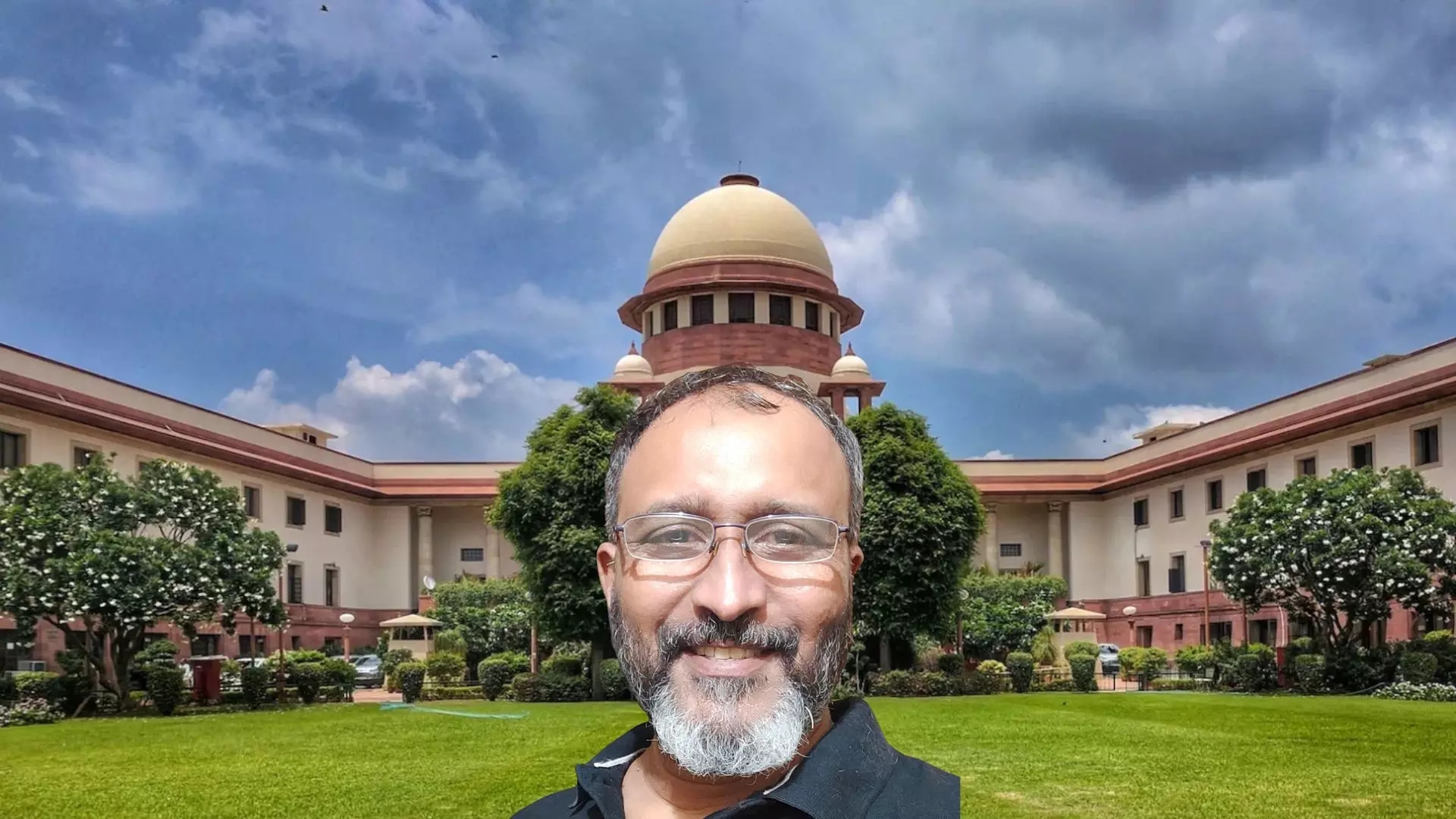
Animal welfare should be guided by reason, not emotion: Activist Muralidharan
Activist Muralidharan reacts to SC’s blanket removal of stray dogs from Delhi, saying animal welfare should be driven by reason, not emotion

Activist Muralidharan, in a candid conversation with The Federal, shared his reaction and perspective on the Supreme Court’s order to round up all the stray dogs and take them off the streets of Delhi-NCR.
While many animal rights activists, including former Union minister Menaka Gandhi, expressed their displeasure with the apex court’s order, Muralidharan offered a different viewpoint. In his view, the Supreme Court’s order is a welcome decision.
“A dog is a pet that belongs at home and should never be cast out onto the streets,” he emphasised. He added that stray dogs face extreme cruelty — they rummage through garbage, drink from sewage, suffer abuse such as acid and hot water attacks, and are often run over by vehicles daily.
Also read: Rahul slams SC order on stray dogs: 'Cruel, shortsighted’
Govt knows the best
Regarding human-animal conflicts and the rising cases of dog bites and rabies deaths, he said the people affected the most are those from poor and marginalised backgrounds who do not have access to immediate medical aid.
He agrees with the Supreme Court’s clear warning for those who may attempt to interfere with the given orders, and calls it a “beautiful thing”. According to him, similar orders may soon be implemented in Tamil Nadu as well.
On the matter of improving the quality of life for these dogs, he said the government’s orders are a “service” provided in a subsidised manner to benefit the public. He highlighted the disparity between government-run zoos and privately owned animal parks, expressing confidence that the government is better equipped to manage such services than private entities.
Also read: Why are stray dog attacks on the rise? Expert Chinny Krishna explains
He said that while civic bodies and governments have the authority to euthanise animals, large-scale or indiscriminate culling is not acceptable. However, according to him, sick and elderly animals with poor quality of life may be humanely euthanised.
According to Muralidharan, corruption and delays in sterilising the stray dog population are ongoing problems. When a dog bites someone, the local Municipal Corporation captures and observes it. If the dog is found rabies-free, it is returned to the same area, an approach that fails to resolve the issue and allows the dog to continue biting people, causing further distress for all involved.
“When the dog bites, it's a civic issue. It's a healthcare issue. When the dog kills somebody, it's a law and order issue.” he said.
Also read: Why PETA, animal activists are protesting SC order to 'cage' stray dogs
Euthanasia as solution
He also offered euthanasia as a solution, and said “it’s not a cruel thing”. In his perspective, it's an ethical medical practice in the veterinary world.
Muralidharan emphasised, “Animal welfare must come from the head, not just the heart.” He explained that well-meaning young people often take in stray animals and run solo rescue operations funded by donations, but when they run out of resources, the animals in their care are handed over to other shelters by the state’s animal welfare board, many of which are already understaffed and overwhelmed.
“The whole matter cannot be mitigated overnight. It should have been done some 20 years ago, which they didn't do.” he said.
Also read: What TN is doing to address stray dog menace
Need for cruelty-free facility
He urged animal rights activists to volunteer at the proposed shelters for stray dogs, cautioning that the work would be far from easy. It is a demanding responsibility that few can truly handle. Any facility housing these stray animals must be cruelty-free, which is where activists like him play a crucial role.
He proposed starting with 10 shelters, each accommodating 50 dogs, then gradually increasing capacity to 100 dogs and beyond, alongside a rise in animal welfare funding from Rs 20 crore to Rs 50 crore and more. “You need the will to get down and do it, and that will lies with the government,” he said.
While the Supreme Court’s verdict has sparked diverse reactions from netizens, animal welfare activists, celebrities, politicians, and others, only time will tell if the Supreme Court’s order will help people and animals coexist peacefully across the nation.
The content above has been generated using a fine-tuned AI model. To ensure accuracy, quality, and editorial integrity, we employ a Human-In-The-Loop (HITL) process. While AI assists in creating the initial draft, our experienced editorial team carefully reviews, edits, and refines the content before publication. At The Federal, we combine the efficiency of AI with the expertise of human editors to deliver reliable and insightful journalism.

